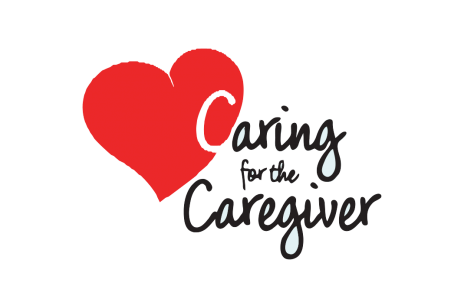Care Blog
Caring for the Caregiver - "How to Overcome Stressors"

Caregiving for a loved one is one of the highest stressors for any person. In order to ensure that one maintains a balance while caregiving, you need to know the signs of stress and learn ways to advocate for yourself. First, in order to have the “tools” to help you should become aware of the Caregiver Bill of Rights. The Caregiver Bill of Rights was designed by a group of professionals to help a person identify what needs they might have and become more aware of how to take care of themselves. Here is the Caregiver Bill of Rights-
As a caregiver, I have the right……
- To take care of myself-to rest when I’m tired, to eat well, and to take breaks from caregiving when I need them.
- To recognize the limits of my own endurance and strength.
- To seek help from family, involved parties, and the community at large.
- To socialize, maintain my interests, and to do the things I enjoy.
- To acknowledge my feelings, whether positive or negative, including frustration, anger, and depression; and to express them constructively.
- To take pride in the valuable work I do, and applaud the courage and inventiveness it takes to meet the needs of my care recipient.
The second “tool” a caregiver needs is to know about is how to advocate their own well-being and this is contained in the Principles of Caregiver Self-Advocacy. They include the following four principles:
1. Choose to take charge of your life.
2. Honor, value, and love yourself.
3. Seek, accept, and at times request assistance.
4. Stand-up and be counted – “toot your own horn.”
After you are aware of the importance of helping yourself you need to understand caregiver stress and how it manifests itself in one’s life.
One of the biggest PROBLEMS for a caregiver is that of STRESS! IT IS ALWAYS SEEMS TO BE CHASING YOU.
Wth stress there are both positive and negative types, knowing what they are can help a person understand their strengths and weaknesses. Here is a comparison of the two –
Positive vs. Negative Stress
POSITIVE STRESS
– Going on a Vacation
– New Job
– New Marriage
– Meeting a deadline
– Winning the lottery
– New baby
– Moving to a new home
NEGATIVE STRESS
– Divorce
– Job Loss
– Illness
– Trauma
So now that we have identified the good and the bad types of stress, we need to know what contributes to or causes stress. Stress is anything that puts an extra load on the body from things such as:
- Drugs (over-the-counter, legal or illegal), and alcohol abuse
- Chemicals/Toxins
- Infections
- Allergies (food and environmental)
- Surgery/Injury
- Noise
- Excessive fatigue/loss of sleep/insomnia
- Psychological upsets/Resentments/Hate/Worry
- Family Issues
- Lack of enough time in the day
- Loss of emotional support, income, job, housing, etc.
- Burnout from job, or other issues like caregiving.
As caregivers, we sometimes experience physiological changes that manifest in our bodies to try to let us know we are stressed, and tell us to take care of ourselves. However, many people dismiss the signs until they become chronic and reach a critical point where they are no longer able to cope with the caregiving situation. Thus, knowing what some of the early symptoms of stress are can be very beneficial. Here is a list of just a few symptoms – rapid heartbeat, shortness of breath, sweating, headaches, irritability/mood swings, cravings for high sugar/high fat, and muscle tension. It is important to note that these can also be signs of other critical health conditions and one should be checked by a health care professional whenever you experience one or more of these occurrences.
If you listen to a caregiver and their concerns you may hear caregiver stress in what they say. Here are just a few examples of caregiver stress expressed by family as well as paid caregivers:
“I can’t tell you how stressed I am caring for my parents, working at a job and caring for my family of three that I have sole support. I have no life outside of work and home – there just isn’t enough time in the day.”
“ Caregiving of my hospice clients in the last two months has taken its toll on me. I lost four of them and I liked them so much. Where do I go to grieve, or who do I talk with?”
“I love my clients so much that when I am called upon for more work I can’t say no. I wonder why I am getting sick all the time.”
When one is overly stressed due to the multitude of caregiver demands they can often experience “burnout.” Burnout is defined as the intensive progression of your many caregiver stresses – physical, emotional, financial, psychological, and social – to the point that you feel totally “burned out.”
So here is a list of some of the manifestations of caregiver burnout –
- Feeling increased stress and anxiety over even minor things
- Despairingly blaming yourself for your inability to meet unrealistic demands
- Feeling everything is out of control, and you don’t see a way out
- Loss of energy and constant feeling of exhaustion, emotionally and physically
- Feeling helpless, hopeless, or on the verge of tears often
- Overreacting to minor things and snapping much too quickly
- Frequent indigestion, loss of appetite, more headaches and body aches
- Significant weight gain or loss, or change in eating patterns
- Loss of interest in your appearance and grooming
- Change in sleep patterns or sleeplessness
- Decreased productivity or lack of interest in work
- Scattered thinking, inability to concentrate, or trapped in circular thinking
- Feeling increasingly resentful, angry, bitter, or blaming yourself or others
- Loss of interest in favorite activities and hobbies
- Withdrawal from anything social, avoidance of friends and family
- Feeling it takes too much energy to interact with others and do things
- Inability to relax, feeling there is always something you must be doing
- Engaging in nervous habits such as binging, chain smoking, drinking
- Feeling you want to hurt yourself or your charge
- Having increasing thoughts of death
- Increasing use of medications for anxiety, depression, sleep, stomach
- Feeling physically run down and getting sick much more often
If you are experiencing any of these symptoms/issues here are some tips to help you deal with the burnout and stress.
- Make sure you set realistic goals and don’t try to do too much.
- Ask for help – Family, Friends, Pastor/Priest, Employee Assistance Program, and Counselor.
- Set priorities for each day. Make a list
- Do not become isolated. Stay connected with family and friends.
- Incorporate exercise into your daily routine.
- Maintain good nutrition.
- Develop strategies for coping.
- Join a support group.
Lastly, it is important to know that You Are Not Alone! According to the National Family Caregivers Association more than 65 million people, 29% of the U.S. population, provide care for a chronically ill, disabled or aged family member or friend during any given year and spend an average of 20 hours per week providing care for their loved one.
For more in-depth information on caregiver issues you can find information on the Caregiver Action Network.
Share:
Call Us Today
Call us today to schedule a free in-home care assessment so we can help you understand how you or a loved one can have a safe and happy life at home.

Take the Quiz
Let us know what kind of help you might need, and we’ll be back in touch to customize a plan for you.
Take the Quiz
